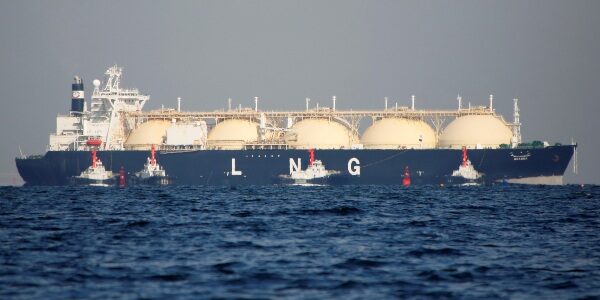Natural gas prices are likely to decline further today after Woodside Energy reached an in-principle agreement with a trade union that should significantly reduce the risk of industrial action at the largest LNG production facility in Australia.
That’s according to ING’s Warren Patterson and Ewa Manthey, who wrote a note today, stating that natural gas prices in Europe had already shed 14% on Wednesday due to the prospect of an agreement between Woodside and its workers. However, the danger of another price spike is not over yet, as negotiations between Chevron and trade unions continue.
Earlier this month, gas prices in Europe soared by 40% on the news that workers at three LNG facilities in Australia were planning industrial action. Such action would disrupt about a tenth of the global LNG supply.
The North West Shelf, operated by Woodside, is the largest LNG production project in Australia, with a capacity of 16.9 million tons annually. It is followed by Gorgon, which has a capacity of 15.6 million tons, while Wheatstone can produce 8.9 million tons of LNG annually.
Negotiations began immediately and appear to have produced results that will help avoid another gas price shock for Europe, even as its gas storage has reached its fill-up target of 90% three months ahead of the deadline.
The strike risk highlighted the precarious balance of the global LNG market after demand spiked last year due to Russian pipeline gas flows being decimated amid the war in Ukraine. This has made large LNG suppliers like Australia all the more important, with any news suggesting supply disruptions having a significant impact on prices.
Meanwhile, Reuters reports that Woodside’s workers now have to ratify the in-principle deal, but it looks like that particular strike has been averted.
This is good news for LNG buyers because even if Chevron fails to reach a deal with its workers, the impact of a strike will be smaller when it doesn’t involve the massive North West Shelf facility.
![]()




